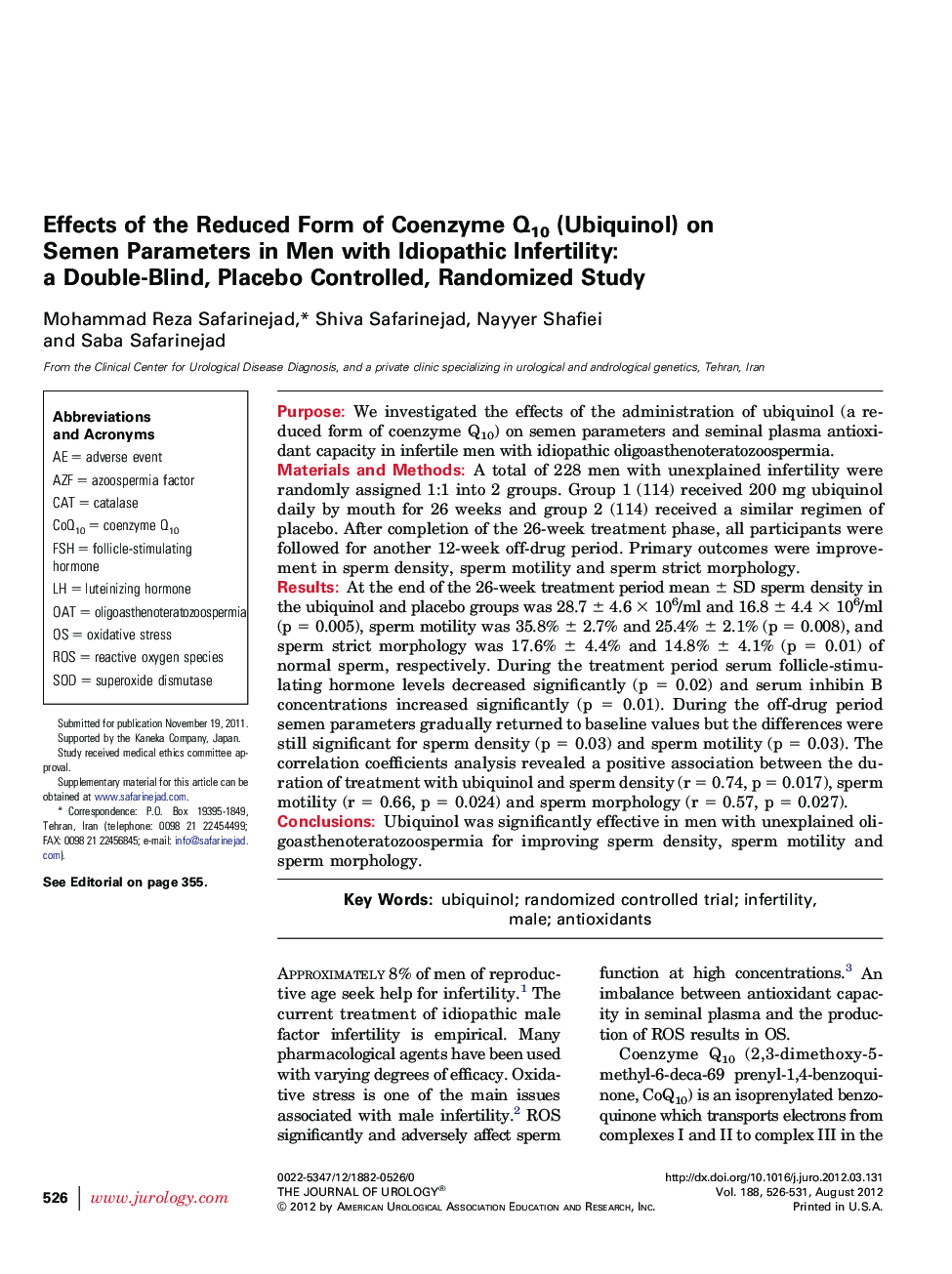| Article ID | Journal | Published Year | Pages | File Type |
|---|---|---|---|---|
| 3867130 | The Journal of Urology | 2012 | 6 Pages |
PurposeWe investigated the effects of the administration of ubiquinol (a reduced form of coenzyme Q10) on semen parameters and seminal plasma antioxidant capacity in infertile men with idiopathic oligoasthenoteratozoospermia.Materials and MethodsA total of 228 men with unexplained infertility were randomly assigned 1:1 into 2 groups. Group 1 (114) received 200 mg ubiquinol daily by mouth for 26 weeks and group 2 (114) received a similar regimen of placebo. After completion of the 26-week treatment phase, all participants were followed for another 12-week off-drug period. Primary outcomes were improvement in sperm density, sperm motility and sperm strict morphology.ResultsAt the end of the 26-week treatment period mean ± SD sperm density in the ubiquinol and placebo groups was 28.7 ± 4.6 × 106/ml and 16.8 ± 4.4 × 106/ml (p = 0.005), sperm motility was 35.8% ± 2.7% and 25.4% ± 2.1% (p = 0.008), and sperm strict morphology was 17.6% ± 4.4% and 14.8% ± 4.1% (p = 0.01) of normal sperm, respectively. During the treatment period serum follicle-stimulating hormone levels decreased significantly (p = 0.02) and serum inhibin B concentrations increased significantly (p = 0.01). During the off-drug period semen parameters gradually returned to baseline values but the differences were still significant for sperm density (p = 0.03) and sperm motility (p = 0.03). The correlation coefficients analysis revealed a positive association between the duration of treatment with ubiquinol and sperm density (r = 0.74, p = 0.017), sperm motility (r = 0.66, p = 0.024) and sperm morphology (r = 0.57, p = 0.027).ConclusionsUbiquinol was significantly effective in men with unexplained oligoasthenoteratozoospermia for improving sperm density, sperm motility and sperm morphology.
